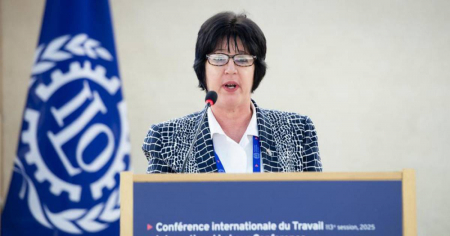While thousands of Cuban university students are leading one of the most significant protests in recent years against the ETECSA rate hike, the official media has chosen to look the other way.
Far from providing transparent information or reflecting the real debate shaking the classrooms, Cubadebate published on June 8 a series of doctrinal verses signed by Yoerky Sánchez Cuéllar, in which the conflict was rebranded as simply a “respectful dialogue.”
Under the title "Respectful Dialogue," Sánchez Cuéllar —current director of the newspaper Juventud Rebelde and former director of Alma Mater, the magazine of the University Student Federation— penned three stanzas with the intention of softening and depoliticizing student outrage.
A rhymed pamphlet according to the canon of the Ñico López school
From a literary perspective, the décimas lack poetic depth, originality, and expressive honesty. In reality, they seem to have been crafted in the gardens of the Ñico López school, where future "cadres" of the Communist Party are trained in floral competitions of spartan "chivatiente" meter.
Far from providing a nuanced perspective on a conflict that represents a tragedy for the nation, or a synesthetic interpretation of the critical moment, the "periopoet" merely recited clichés and commonplaces, such as "understanding is what matters" or "only the foolish fail to appreciate the energy unleashed by respectful dialogue."
Sánchez Cuéllar delivered a predictable rhyme, filled with forced verses, that did not question reality with the help of the muses, but instead disguised it in collusion with the succubus of La Ciguapa.
His décimas evoke the old manuals of revolutionary ideological discourse: what cannot be named is cloaked in hollow metaphors. The result is a paper-mâché poem, designed to legitimize the official narrative: there is no conflict, only dialogue; there is no dissent, but rather an "exchange of elements."
Institutional silence and official evasion
While students demand public explanations, fairer rates, and equitable access to connectivity, the regime's press has chosen to ignore the facts or label them as "fake news".
Neither the National Television News nor Granma nor Rebel Youth have covered the university assemblies, the votes on the strike, the technical debates, or the statements from the faculties.
In its place, the only symbolic gesture from the media apparatus has been the tedious poem-shaped piece by Sánchez Cuéllar, which doesn't even mention the students, ETECSA, or the word "protest."
This omission is not naïve. In parallel, the ruler Miguel Díaz-Canel vaguely referred to the "discontent" in his podcast From the Presidency, completely avoiding any mention of the reasons put forth by the students for the university mobilization, which he described as an intense campaign of manipulation on social media, "full of lies."
At the same time, the regime signaled a hardline stance, with the promotion of the Minister of the Interior, Lázaro Alberto Álvarez Casas to the rank of Army Corps General, as well as direct threats from State Security reported by students at the Central University "Marta Abreu" of Las Villas.
Between fear and metaphor: Literature or propaganda?
The case of the décimas published by Cubadebate is representative of a common rhetorical tactic in the official Cuban press: replacing journalism with pamphlet-style pseudoliterature when reality surpasses the allowed narrative.
By avoiding any specific mention, Sánchez Cuéllar's poem becomes a text of ideological alignment rather than critical reflection. There is no empathy towards the students, no respect for their demands, and no acknowledgment of the historical moment they are experiencing.
Moreover, these "décimas" appear to serve a decorative function: they soften the perception of conflict for an audience that has been tamed by decades of a singular narrative.
The price of not saying
What goes unsaid also communicates. And what is hidden also serves as a form of denunciation. In a country where young people rightly demand their right to participate, express opinions, and build a fairer society, empty metaphors are not enough.
Universities are aflame with debate, and the government responds with décimas. Citizens demand real changes, and the official press responds with eloquent silences, veiled threats, and nauseating verses.
As a student said in one of the MATCOM assemblies: “Are we vulnerable, or are their measures making us vulnerable?”.
The answer, it is clear, will not be found in Cubadebate.
Filed under:
